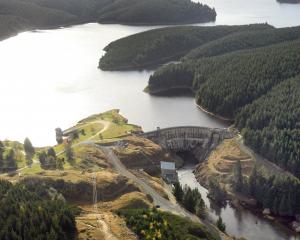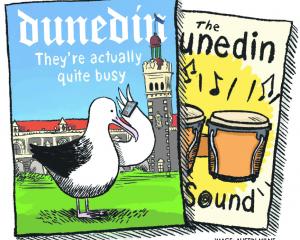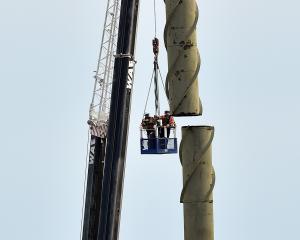King Salmon wants to test two 3600ha Otago ocean sites for the viability of offshore salmon farming.
Its chief executive says the operation would be environmentally friendly and potentially worth hundreds of millions of dollars, and could form the country's next dominant industry.
Otago Regional Council staff are suggesting it processes the consents itself, rather than deferring decisions to the Conservation Minister.
This would be different from the approach taken by other councils to which the company has applied.

New Zealand King Salmon Company Ltd has applied for coastal permits for two equal-sized marine monitoring sites off the Otago coast covering a total of 7200ha.
One is 16km southeast of Coal Point, in South Otago, and the other is 12km southeast of Shag Point, in East Otago.
King Salmon seeks a 10-year window to use up to six monitoring buoys in each location which would be a maximum of 2m above sea level and 2m in width and length.
The monitoring will inform decisions by the company in establishing marine farms at those locations.
King Salmon has lodged similar applications with the Marlborough District Council, Environment Canterbury and Environment Southland. However, they each cover smaller areas.
Both Marlborough and Southland councils opted to defer the decisions to Conservation Minister Eugenie Sage as they considered they were of ''national significance''.
However, in an Otago Regional Council report this week, policy planning and resource management director Tanya Winter recommended it process the consents as normal and not give up its ''right to make decisions on the application''.
The application to Environment Canterbury has been sent back to the company as ''incomplete''.
King Salmon chief executive Grant Rosewarne said yesterday he agreed with the Otago council's approach and was ''disappointed'' other councils called in the minister.
''We definitely want to go at a reasonable pace on this and we do not want to waste unnecessary resources.
''It's our view that open-ocean aquaculture could become New Zealand's most valuable industry bar none. That's including dairy, forestry, tourism ... ''
He pointed to the offshore ''aquaculture'' industry in Norway, which was booming and tipped to replace oil and gas as part of its ''bio-economy''.
It would create ''green jobs'', he said.
''New Zealand and any councils that want to embrace that. It ticks all the boxes for what the new Government wants to do.''
The salmon farms themselves would likely be about 3ha.
The offshore operations would be a first for the company, which now farms only in the Marlborough Sounds.
By the time one of the farms reached 10,000 tonnes it could make $230 million in revenue, Mr Rosewarne said.
If Otago became its main centre of operation, the company would look to move its facilities there, he said.
The monitoring operation would not restrict access for vessels and fishers.
Forest & Bird environmental lawyer Sally Gepp said King Salmon appeared to be ''trying to lock in exclusive occupation of public marine space'' before having an actual marine farming proposal ready.
''We have some concerns at this new and novel approach, and will continue to watch further developments with interest.''
The Otago Regional Council will decide today whether to follow staff advice and call in the minister.













